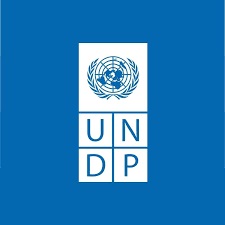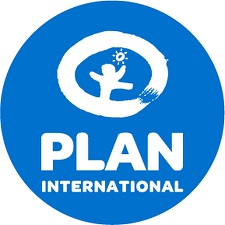🇸🇱 Job Vacancies @ UNDP (United Nations Development Programme) – 2 Positions

See job details and how to apply below.
1.) Health Manager, UN Clinic Physician
Background
As in many program countries, UN field personnel in Sierra Leone are exposed to various health and security hazards that may result in disease, psychological trauma, and life-threatening injuries. Dedicated, effective primary health, occupational health, and emergency medical services may mitigate negative outcomes of trauma, injuries, and health complications and provide better chances for saving lives as well as faster and better recovery.
The Health Manager, UN Clinic Physician, is part of the UN common services of the UN country team in Sierra Leone and administered by UNDP. In that context UNCT, after long consultation and evaluation of health conditions in Sierra Leone, decided to recruit a national Physician.
The incumbent will attend to the UN Clinic on a full time basis and provide medical services to staff members and their dependents. Also, s/he will facilitate medical evacuations and cooperate with headquarters offices on all related matters. The incumbent is responsible for the day to day running of the UN Clinic and manages the UN Clinic staff and physical assets (equipment and inventories), ensures consistent delivery of high quality medical services to UN staff. The incumbent will also be responsible for medical examinations of staff: a responsibility s/he will share with other designated UN Physicians.
Position Purpose
The incumbent will be under the overall supervision of the UNDP DRR P&O and/or her/his delegate with regards to administrative matters and under the general supervision of the UN Medical Director with regards to technical matters. The incumbent will provide clinical services, including medical consultations and emergency care, and supervise the overall work of the UN Clinic medical staff (nurses, lab technicians, administrative staff, and support staff). The incumbent will promote proactive occupational health policies, best practices, and procedures in the medical services in conjunction with the administration. This will include outreach to staff and dependents in the areas of preventative health. The incumbent is expected to take part in the HIV work in the UN workplace as outlined in UN Cares and UN Plus. S/he is part of the emergency response team and will, as such, work closely with DSS in implementing Casevac and mass casualty response. As per UN standards for full-time positions, and especially given the expectation that the UN doctor be available to handle emergencies outside of working hours, the incumbent is not permitted to take on additional private work outside of this contract.
S/he is expected to be located in Freetown, Sierra Leone, but travel in-country to monitor health conditions of staff and medical facilities in the UN field offices elsewhere in the country. Assessments of medical facilities/hospitals outside Sierra Leone to be used for referrals might be required.
Key Duties and Accountabilities
Within delegated authority, the Medical Officer will be responsible for the following duties::
- Clinical Services Management;
- Medical Administration;
- Supervisory;
- Advisory, liaison, and representation;
- Emergency medical response.
1. Clinic Service Management:
- Attend the United Nations Clinic on a full-time basis;
- Respond to acute emergencies in line with international protocols such as advanced trauma life support management and advanced cardiac life support. or pre-hospital trauma life support;
- Be able to do triage and primary stabilization;
- Undertake day-to-day clinical duties, e.g. walk-in clinic, pre-placement and periodic medical examinations and immunizations;
- Provide health education;
- Participate in addressing work environment and occupational health issues;
- Undertake medical examinations for UN Agencies' international and local staff and dependents;
- Diagnose and recommend treatment to all staff visiting the Clinic on a daily basis, during normal business hours;
- Be on call during and outside office hours to observe and treat emergencies in the UN Clinic and undertake house calls when required;
- Responsible for entry and periodic medical examinations for United Nations staff members who choose to use the UN Clinic for their examinations;
- In case of mass casualty and emergency situations, keep the clinic functional 24/7.
2. Medical Administration:
- Liaise with other dispensaries, host-nation medical facilities and medical facilities abroad to coordinate medical evacuations;
- Follow the United Nations' established policies and procedures regarding medical clearances, sick leave and medical evacuations;
- Recommend medical evacuation when required to Resident Representative of the involved Agency, fund or program (act as the medical expert and submit the evacuation request the advice of the UN Medical Director) and facilitate medical evacuations authorized by the UN Medical Director;
- Responsible for all paperwork and reporting procedures for medical evacuations in line with UN Rules and procedures;
- Ensure proper follow-up on all cases;
- Application of terms of reference in UNDP Program and Operations Policies and Procedures (POPP) for rules and regulations regarding UN Clinic operations;
- Responsible for establishing good relations with reliable hospitals, private medical facilities and blood banks and local physicians, including UN Examining Physicians, if available;
- Keep constant contact with the United Nations Designated Examining Physicians to facilitate their availability as and when required;
- Ensure that proper medical records are kept in a strictly confidential manner;
- Maintain emergency medical supplies and equipment to be used in case of emergency situation;
- Replenish first aid kits and other essential medical supplies kept in other duty stations within the country;
- Recommend procurement of vaccines, medical supplies and equipment, and ensure that inventory is kept updated;
- Maintain medical records of all United Nations personnel and advise health precautionary steps to new staff members;
- Prepare and send periodic (quarterly) reports of functions, visits, medical evacuations and treatments at the UN Clinic to the United Nations Medical Service;
- Advice on health precautionary steps to be undertaken at the duty station, and perform any other duties as considered necessary by the United Nations Medical Director and/or the UN Resident Coordinator;
- Responsible to provide training in UN administrative rules and procedures to the roster of pre-qualified relief doctors to stand in for the UN doctor during his/her illness and leave.
3. Supervisory Administration:
- Lead and manage the medical service team, including clinical and administrative staff;
- Ensures the development, generation, and reporting of relevant key performance indicators documenting health support performance, including responses to audit requests on health performance;
- Ensures timely recruiting and training of all new staff and effective performance management;
- Ensures effective, continuous professional development of staff and their career management;
- Ensure compliance with UN healthcare facilities' standards, implementing training programs to maintain and develop medical capabilities;
- Perform annual planning and budget preparation and manage the EarthMed medical record system;
- Manage day-to-day mission medical support operations by ensuring availability of supplies and proper functioning of medical equipment;
- Ensure that appropriate training programs are implemented in order to maintain and develop the medical capabilities (e.g., health education, HIV/AIDS prevention, first aid and CPR);
- Responsible for regular reporting on clinic activities, medical facilities available locally, and other statistical information as may be required.
4. Advisory, liaison and representation:
- Briefs and advises senior management on all healthcare matters relevant to the workplace, including health policies, business continuity, enterprise risk management, and representation at crisis response and related bodies;
- Represents the medical service on health and medical entitlements matters before the UN judicial system and UN investigative bodies;
- Ensures effective occupational health representation at the local occupational health and safety committee;
- Planning and organization of training of focal points and peer educators;
- Arranging the dissemination of UN policies on HIV/AIDS;
- Conducting an education and information campaign.
The incumbent performs other duties within their functional profile as deemed necessary for the efficient functioning of the Office and the Organization.
Competencies
Core Competencies
- Achieve Results: LEVEL 3: Set and align challenging, achievable objectives for multiple projects, have lasting impact;
- Think Innovatively: LEVEL 3: Proactively mitigate potential risks, develop new ideas to solve complex problems;
- Learn Continuously: LEVEL 3: Create and act on opportunities to expand horizons, diversify experiences;
- Adapt with Agility: LEVEL 3: Proactively initiate and champion change, manage multiple competing demands;
- Act with Determination: LEVEL 3: Think beyond immediate task/barriers and take action to achieve greater results;
- Engage and Partner: LEVEL 3: Political savvy, navigate complex landscape, champion inter-agency collaboration;
- Enable Diversity and Inclusion: LEVEL 3: Appreciate benefits of diverse workforce and champion inclusivity.
Cross-Functional/Technical competencies
Business Management
- Customer Satisfaction/Client Management
- Ability to respond timely and appropriately with a sense of urgency, provide consistent solutions, and deliver timely and quality results and/or solutions to fulfil and understand the real customers' needs;
- Provide inputs to the development of customer service strategy. Look for ways to add value beyond clients' immediate requests. Ability to anticipate client's upcoming needs and concerns.
- Communication
- Ability to communicate in a clear, concise, and unambiguous manner both through written and verbal communication; to tailor messages and choose communication methods depending on the audience.
- Resource Management
- Ability to allocate and use resources in a strategic or tactical way in line with business needs and priorities and principles of accountability and integrity.
Business Development
- Knowledge Facilitation
- Ability to animate individuals and communities of contributors to participate and share, particularly externally.
2030 Agenda: Engagement & Effectiveness
- Effectiveness
- Performance and data analysis and sharing lessons.
- Event Planning and Execution
- Ability to plan, manage and execute public and private events to ensure that they support and amplify individual communications and advocacy initiatives, as well as UNDP's overall brand and mandate.
Business Direction and Strategy
- Strategic Thinking
- Ability to understand and deal with a business situation in a manner that is likely to lead to a good outcome;
- Ability to make good judgments and quick decisions within such frameworks Knowledge and understanding of the operational frameworks in the organization.
Required Skills and Experience
Education:
- A first-level university degree that qualifies for registration as a licensed medical practitioner (MD, MBBS, MBChB, or equivalent) and current unrestricted registration with the medical licensing authority of one of the Member States of the United Nations is required;
- Proficiency in MS Office (Word, Excel, etc.);
- Familiarity with medical record systems (e.g., EarthMed).
Experience, Knowledge and Skills:
- A minimum of five years of progressively responsible clinical experience in one of the areas of medicine is required;
- Residency and/or Internship in one of the medical specialties, preferably internal medicine, or family medicine, is required;
- Two years of experience in the Occupational Health field is highly desirable;
- Experience with International Organizations and/or field deployments is required;
- Two years of managerial experience in the medical field, including budgeting, supervisory responsibilities, and resource management, is required;
- Valid certification in Advanced Trauma Life support, Advanced cardiac Life support, OR Prehospital trauma life support is required;
- Proven ability to handle acute emergencies, triage, and stabilization;
- Experience in mass casualty and medical evacuation coordination;
- Certification in HIV care OR VCCT is desirable;
- Experience in the usage of computers and office software packages (MS Word, Excel, etc.) is expected.
Language Requirement:
- Fluency in English Language is required;
- Fluency in national language of the duty station (Krio) is required
Equal opportunity
As an equal opportunity employer, UNDP values diversity as an expression of the multiplicity of nations and cultures where we operate and, as such, we encourage qualified applicants from all backgrounds to apply for roles in the organization. Our employment decisions are based on merit and suitability for the role, without discrimination.
UNDP is also committed to creating an inclusive workplace where all personnel are empowered to contribute to our mission, are valued, can thrive, and benefit from career opportunities that are open to all.
Sexual harassment, exploitation, and abuse of authority
UNDP does not tolerate harassment, sexual harassment, exploitation, discrimination and abuse of authority. All selected candidates, therefore, undergo relevant checks and are expected to adhere to the respective standards and principles.
Right to select multiple candidates
UNDP reserves the right to select one or more candidates from this vacancy announcement. We may also retain applications and consider candidates applying to this post for other similar positions with UNDP at the same grade level and with similar job description, experience and educational requirements.
Scam alert
UNDP does not charge a fee at any stage of its recruitment process. For further information, please see www.undp.org/scam-alert.




